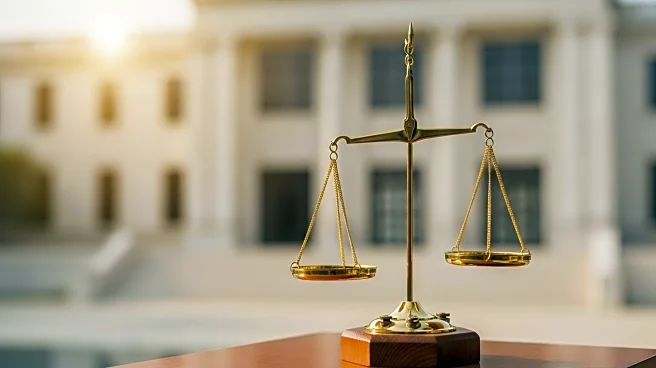What's Happening?
Republican Congressman Keith Self has raised concerns about current free speech regulations and suggested a review of the Federal Communications Commission (FCC) guidelines. Self emphasized the importance of Congress examining existing laws to determine necessary updates and ensure equitable treatment across platforms. This discussion comes amid ongoing debates about the balance between free speech and regulatory oversight in the digital age. Self's comments reflect a broader conversation about how communication laws should evolve to address modern challenges posed by digital media and technology.
Why It's Important?
The proposal to review FCC regulations is significant as it touches on the broader issue of free speech in the United States, particularly in the context of digital platforms. As technology continues to evolve, the regulatory framework governing communication must adapt to ensure it effectively addresses new challenges. This review could impact how digital platforms operate, potentially affecting content moderation policies and the balance between free speech and harmful content. Stakeholders such as tech companies, policymakers, and civil rights groups may have differing views on the implications of such regulatory changes, highlighting the complexity of modern communication governance.
What's Next?
If Congress decides to proceed with a review of FCC regulations, it could lead to legislative proposals aimed at updating communication laws. This process may involve consultations with various stakeholders, including technology companies, legal experts, and civil rights organizations, to gather diverse perspectives on the issue. The outcome of this review could influence future policy decisions and set precedents for how digital communication is regulated in the U.S. The potential changes could also spark debates about the balance between free speech and regulation, with implications for both domestic and international digital policy.
Beyond the Headlines
The discussion around updating FCC regulations also raises ethical and legal questions about the role of government in regulating speech. As digital platforms become increasingly central to public discourse, the challenge lies in ensuring that regulations protect free speech while preventing the spread of harmful content. This debate may also influence cultural perceptions of free speech and the responsibilities of digital platforms in fostering healthy public discourse. Long-term shifts in communication policy could redefine the boundaries of free speech in the digital age, impacting how individuals and organizations engage online.









